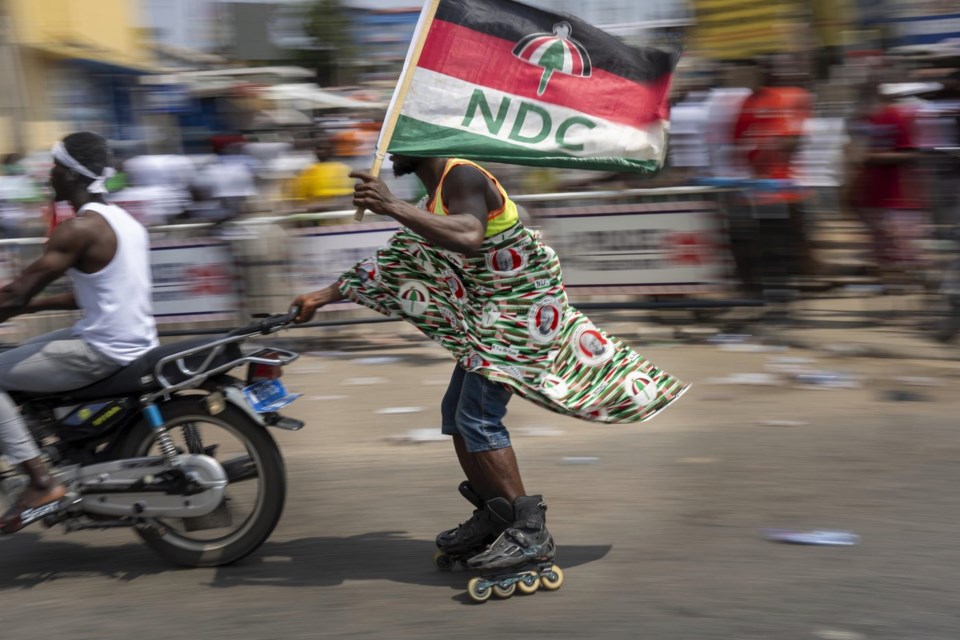ACCRA, Ghana (AP) — Ghana’s former leader John Dramani Mahama was officially declared the winner of the on Monday evening, after voters vented anger at the government’s handling of the economy.
Previously president between 2012 and 2017, Mahama, 65, received 6.3 million votes, or 56.5% of votes cast, the electoral commission said.
Mahama’s main opponent, Vice President Mahamudu Bawumia, conceded defeat on Sunday. Bawumia got 4.6 million votes, or 41%.
The turnout based on the votes from 267 constituencies stands at 60.9 percent, said Jean Mensa, the electoral commissioner. Although vote counting was ongoing in nine constituencies, that will not change the final result, Mensa added.
Mahama has described his victory as “emphatic.” He had promised to “reset” the country on various fronts, during a campaign that prioritized the economy and largely appealed to young Ghanaians who saw the vote as .
After Bawumia conceded defeat, celebrations broke out on Sunday among the supporters of the opposition candidate in parts of the country, including the capital city. Wearing the opposition party’s white, green, red and black colors, women and young people danced to music and trumpet blasts on the streets and at the party’s national headquarters
The election for both the president and members of parliament was held against the backdrop of the country’s worst cost-of-living crisis in a generation. It was seen as a litmus test for democracy . West Africa’s regional bloc of ECOWAS said the election was generally peaceful, a continuing trend in Ghana.
Bawumia was running as the flagbearer of the ruling New Patriotic Party, or NPP, which has struggled to resolve the economic crisis under outgoing President Nana Akufo-Addo. Mahama’s National Democratic Congress also won the majority in parliament, he said.
Mahama’s win is viewed as following the latest trend of elections around the world, favoring opposition parties against incumbents, from the United States to European countries — such as Britain and France — as well as South Africa.
The former president is “the only person” who can fix the ailing economy in Ghana, one of West Africa’s economic powerhouses, said Jude Agbemava, a policy analyst who voted for him.
Like in most other elections in countries where the incumbent lost, the vote in Ghana was about the people making their disaffection known against a government that has lost goodwill, said Seidu Alidu, head of the department of political science at Ghana’s University of Legon.
“I think it has to do with the economy, which is largely a bread and butter issue for every Ghanaian,” said Alidu. “When the people elect you, they require you to do certain things for them. But it was also about the style of governance (because) even in other countries facing economic challenges, governments were being honest with the people, telling them what the reality is, and the steps they have taken to manage it,” he added.
Francis Kokutse And Monika Pronczuk, The Associated Press




